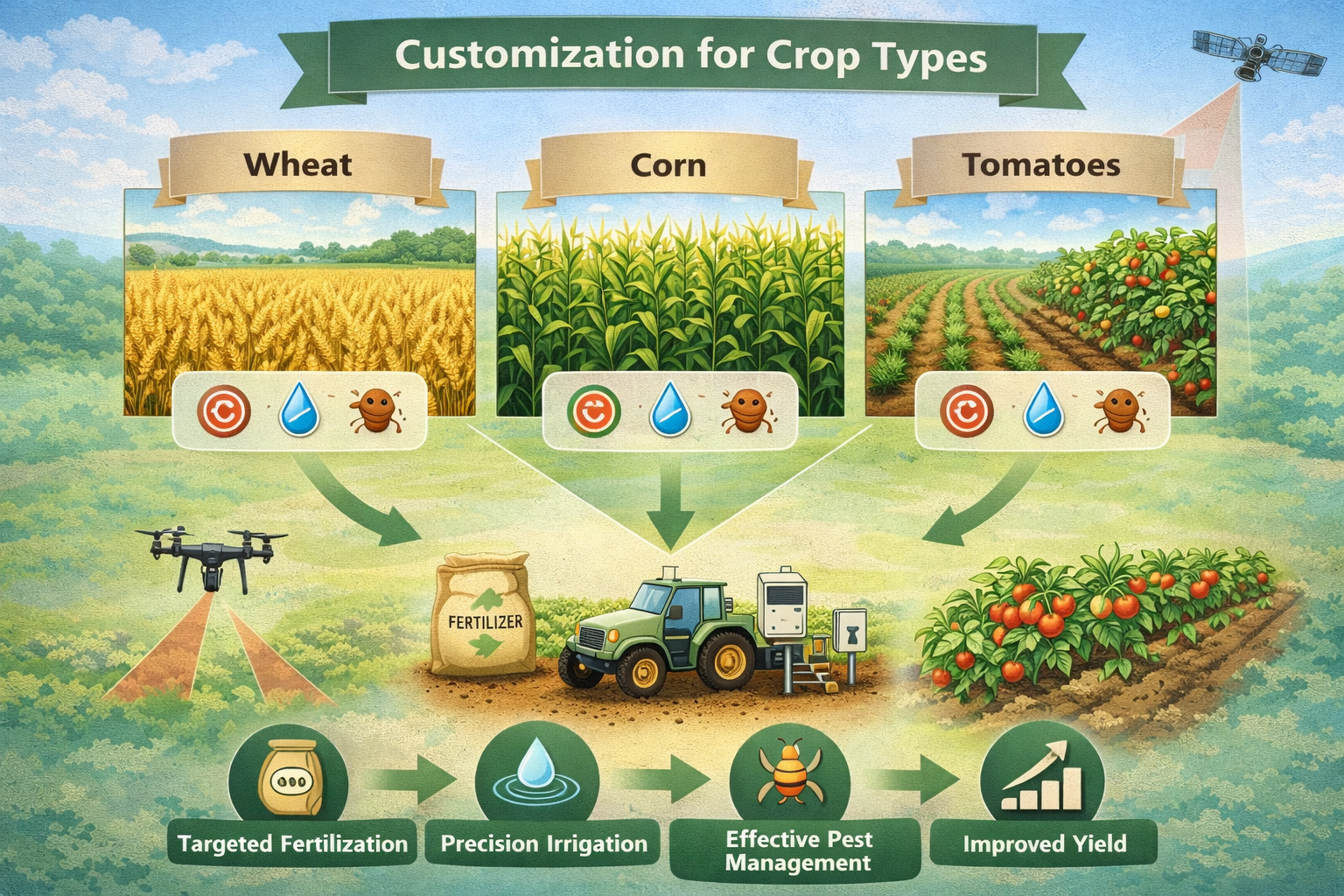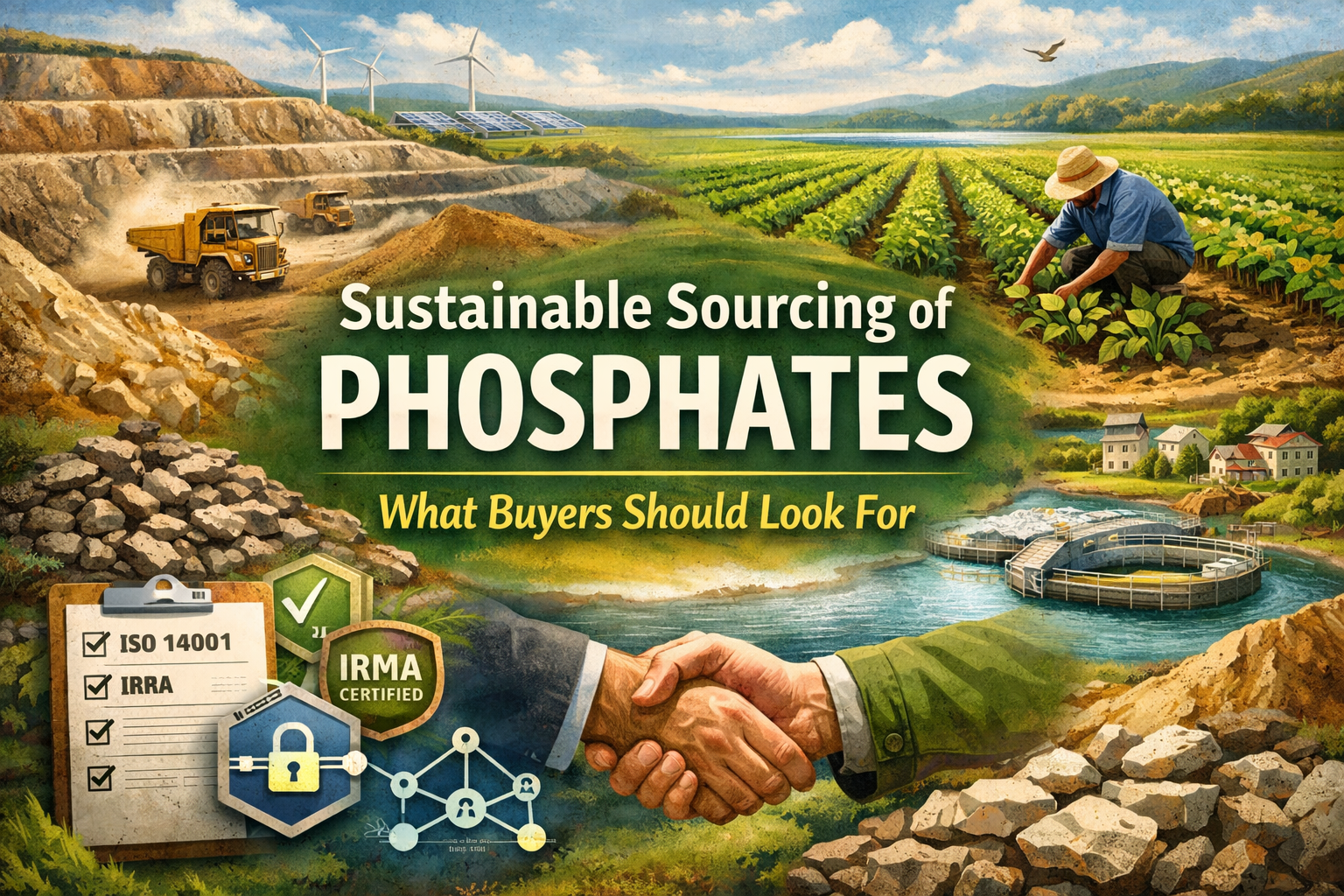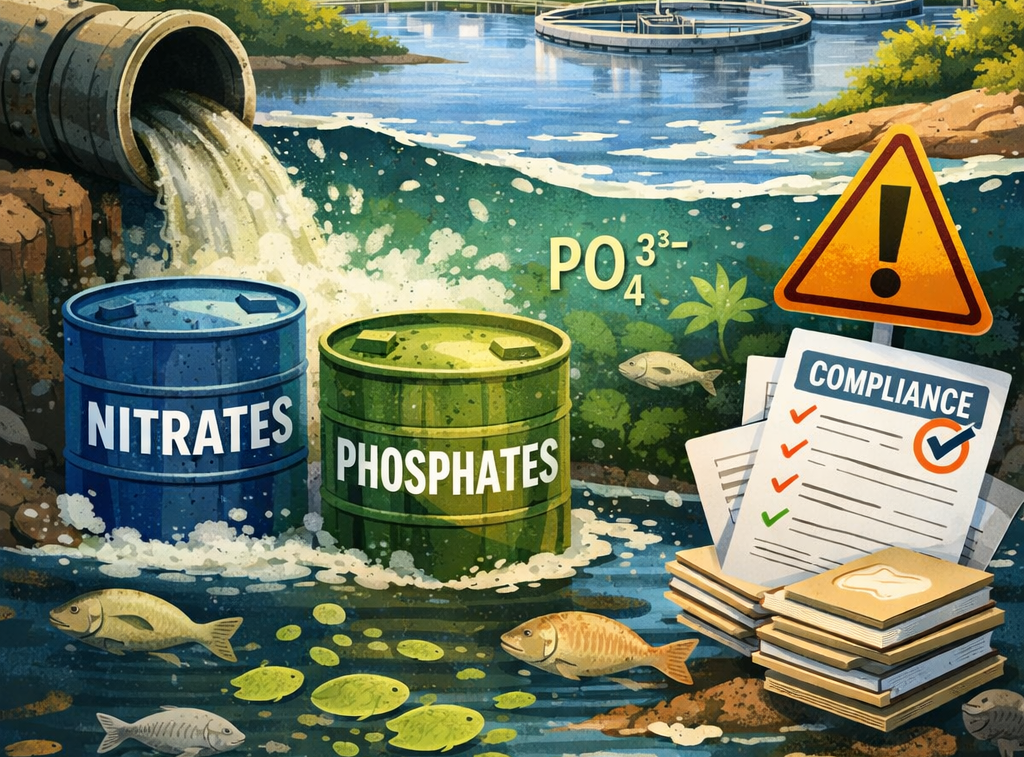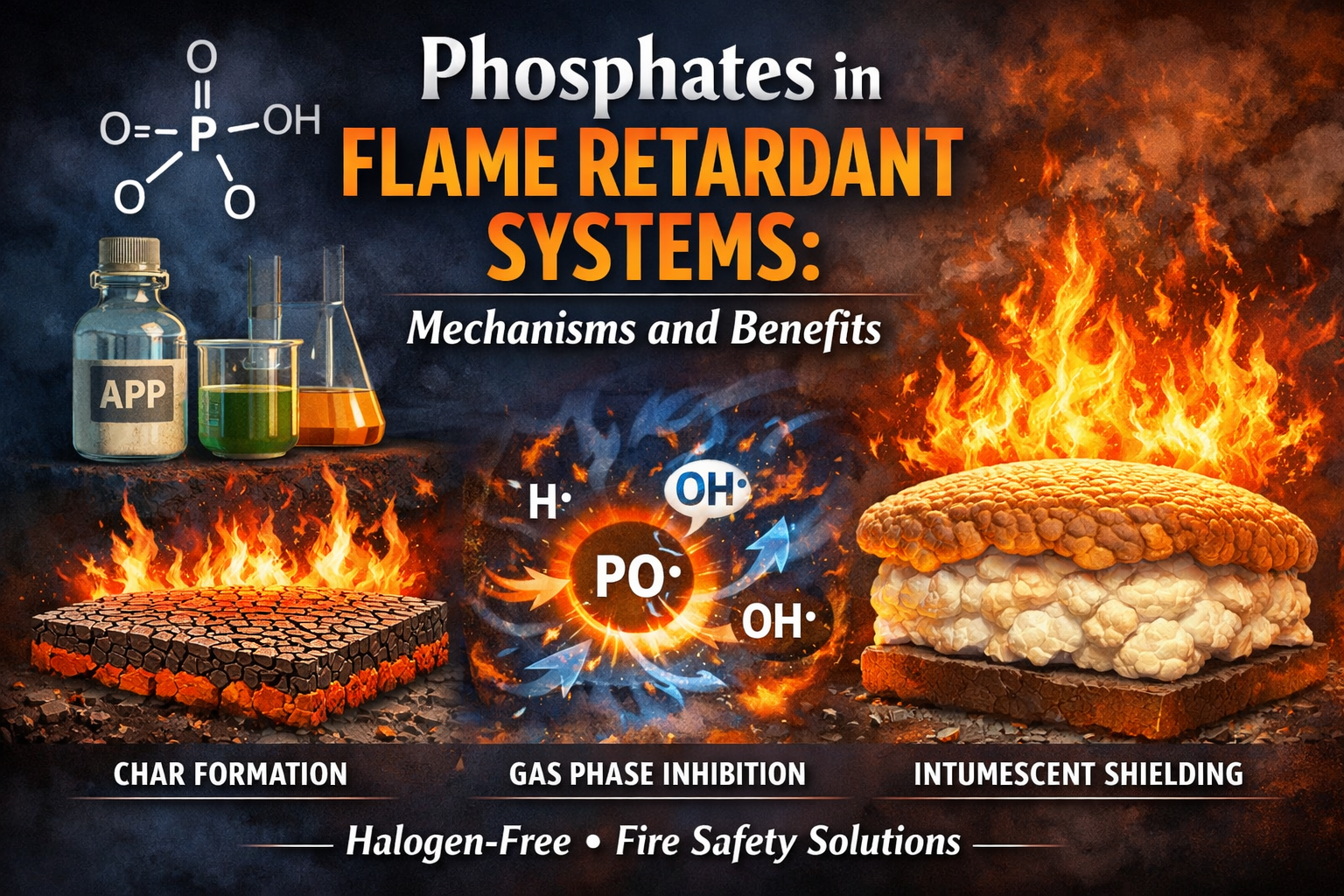Water-Soluble Fertilizers: The Key to Precision Agriculture
Modern agriculture has evolved from broad, manual practices to highly sophisticated systems driven by data and efficiency. Yet, one persistent challenge remains: delivering nutrients to crops precisely when and where they’re needed. Traditional fertilizers often fail to meet this demand, resulting in nutrient losses, inconsistent growth, and environmental impact. Enter water-soluble fertilizers: a breakthrough innovation enabling farmers to fine-tune nutrient delivery with accuracy and control. By integrating these fertilizers into precision agriculture practices, growers can maximize crop yield, optimize resource use, and promote a more sustainable future for farming.
Understanding Water-Soluble Fertilizers
What Are Water-Soluble Fertilizers?
Water-soluble fertilizers (WSFs) are nutrient formulations that dissolve completely in water, providing plants with readily available nutrients through irrigation or foliar feeding. Unlike conventional granular fertilizers, which rely on slow breakdown and soil interactions, WSFs deliver nutrients in a liquid form that plants can absorb almost instantly. Their composition typically includes essential macronutrients and micronutrients, such as nitrogen, phosphorus, potassium, calcium, and trace elements, all precisely balanced to meet the specific needs of each crop.
Compared to traditional fertilizers, WSFs offer superior efficiency and control. While granular fertilizers can suffer from uneven distribution and nutrient loss due to leaching or volatilization, water-soluble fertilizers ensure uniform application and higher nutrient-use efficiency. This makes them especially valuable for high-value crops and controlled-environment agriculture, where precision and consistency are critical.
How They Work
When dissolved in water, the nutrients in WSFs break down into ions - forms that plants can absorb directly through their roots or leaves. This immediate availability enables faster nutrient uptake and quicker plant response. The process minimizes nutrient waste and ensures plants receive the right balance of elements at each growth stage.
Water-soluble fertilizers are also designed for seamless integration with modern irrigation systems, including drip and sprinkler setups. This compatibility
allows for fertigation - the simultaneous delivery of water and nutrients - making nutrient management both efficient and adaptable to precision agriculture systems.
The Role of Water-Soluble Fertilizers in Precision Agriculture
Aligning Fertilizer Use with Crop Needs
Precision agriculture relies on data-driven insights to optimize every input, especially fertilizers. Water-soluble fertilizers perfectly align with this approach by allowing nutrients to be applied based on real-time crop requirements and specific field conditions. Through soil and tissue testing, farmers can determine exactly which nutrients are needed and in what quantities, minimizing waste while maximizing plant health and yield.
Unlike conventional fertilizers applied in fixed doses, WSFs enable flexible, site-specific nutrient management. Farmers can adjust concentrations and application schedules according to weather patterns, crop growth stages, or soil variability. This targeted delivery ensures that crops receive the right nutrients at the right time, improving nutrient-use efficiency and supporting more sustainable farming practices.
Enhancing Fertigation and Drip Irrigation Systems
Water-soluble fertilizers are a cornerstone of modern fertigation systems, where nutrients are delivered directly to the plant root zone through irrigation water. Their complete solubility and stability make them ideal for integration with precision irrigation technologies such as drip and micro-sprinkler systems. These systems allow farmers to control both water and nutrient distribution with remarkable accuracy, ensuring that every drop and every gram of fertilizer contributes to growth.
By using WSFs in fertigation, nutrient delivery becomes continuous and uniform, preventing localized nutrient imbalances or deficiencies. Moreover, automated dosing systems can adjust nutrient concentrations in real time based on crop monitoring data, ensuring consistent plant performance. This synergy between water-soluble fertilizers and precision irrigation not only boosts productivity but also conserves water and reduces environmental impact - key goals of sustainable, high-efficiency agriculture.
Advantages of Using Water-Soluble Fertilizers
Improved Nutrient Efficiency
One of the main advantages of water-soluble fertilizers is their superior nutrient efficiency compared to traditional fertilizers. Because they dissolve completely in water, the nutrients become immediately available for plant uptake through the roots or leaves. This rapid absorption translates into faster growth responses and improved crop quality. Additionally, the controlled delivery of nutrients minimizes losses caused by leaching, volatilization, or runoff - common issues associated with granular fertilizers. As a result, farmers can achieve more with less, applying nutrients precisely where and when they’re needed for maximum impact.
Sustainability and Environmental Benefits
Water-soluble fertilizers also support sustainable farming practices by reducing the environmental footprint of fertilization. Since the nutrients are efficiently absorbed by plants, there is less chance of accumulation or contamination in the soil and nearby water bodies. Moreover, their compatibility with precision irrigation systems enables optimized water use—ensuring that both water and nutrients reach the root zone with minimal waste. This combination of efficient nutrient delivery and water conservation helps preserve soil health, reduce pollution, and promote long-term agricultural sustainability.
Economic Benefits for Farmers
Beyond agronomic and environmental advantages, WSFs provide clear economic benefits. Their efficient nutrient delivery leads to healthier plants, higher yields, and improved crop quality - all of which contribute to greater profitability. Precision application also means reduced fertilizer use over time, lowering input costs without sacrificing performance. For farmers adopting modern fertigation and precision agriculture technologies, water-soluble fertilizers represent a cost-effective investment that delivers measurable returns in productivity, sustainability, and operational efficiency.
Key Nutrients and Formulations in Water-Soluble Fertilizers
Common Formulations
Water-soluble fertilizers come in a wide range of formulations designed to meet the diverse nutritional needs of crops throughout their growth cycle. The most common are NPK blends, which provide essential macronutrients - nitrogen (N) for vegetative growth, phosphorus (P) for root and flower development, and potassium (K) for overall plant strength and stress resistance. These fertilizers are often labeled with specific NPK ratios (such as 19-19-19 or 13-40-13), allowing farmers to select the ideal balance for each growth stage or crop requirement.
In addition to the primary nutrients, WSFs frequently include trace elements and micronutrients such as iron (Fe), zinc (Zn), manganese (Mn), boron (B), and copper (Cu). These play vital roles in enzyme activation, chlorophyll formation and overall plant metabolism, functions that are critical for healthy, high-yielding crops.
Customization for Crop Types
One of the greatest strengths of water-soluble fertilizers is their adaptability. Formulations can be tailored for specific crop groups such as vegetables, cereals, and fruits, ensuring optimal nutrient availability for different growth patterns and environmental conditions. For instance, fruiting crops may require higher potassium levels, while leafy vegetables benefit from nitrogen-rich formulations.
Micronutrient-enriched blends further enhance precision farming by correcting specific deficiencies and improving nutrient uptake efficiency. This customization not only boosts productivity but also aligns perfectly with precision agriculture’s core goal: delivering the right nutrients, in the right amount, at the right time.

Best Practices for Using Water-Soluble Fertilizers
Selecting the Right Fertilizer
Choosing the appropriate water-soluble fertilizer begins with understanding key variables such as soil type, crop growth stage, and irrigation system. Sandy soils, for example, may require more frequent but lighter applications due to faster nutrient leaching, while clay soils retain nutrients longer. Similarly, young crops benefit from phosphorus-rich formulations to support root development, whereas mature plants need more potassium for fruiting and stress resistance. The compatibility of the fertilizer with your irrigation setup, particularly for drip or sprinkler systems, also plays a vital role in ensuring even distribution and efficient nutrient absorption.
Dosage and Application Timing
Proper dosage and timing are essential to achieving maximum yield and preventing nutrient waste. Water-soluble fertilizers should be applied in smaller, consistent doses that match crop demand during each growth phase. Integrating these applications into fertigation schedules allows nutrients to be delivered directly with irrigation water, ensuring continuous feeding and minimizing losses. For most crops, adjusting the concentration of nutrients based on weather, growth rate, and field data leads to improved efficiency and balanced plant nutrition.
Monitoring and Data-Driven Adjustments
Precision agriculture technologies make it easier than ever to fine-tune fertilizer use. IoT-enabled soil and moisture sensors provide real-time feedback on nutrient availability, while satellite imaging and drones help identify areas of deficiency or excess. By combining this data with advanced analytics, farmers can make informed decisions - adjusting fertilizer type, dosage, and timing for optimal performance. This data-driven approach not only maximizes crop yield but also reduces environmental impact and operational costs.
Challenges and Limitations
While water-soluble fertilizers offer significant advantages for precision agriculture, their use is not without challenges. One of the primary concerns is cost - both in terms of the fertilizers themselves and the infrastructure required for efficient application. WSFs are generally more expensive than traditional granular fertilizers, and systems such as drip irrigation or automated fertigation can involve substantial initial investment. For small-scale farmers, these costs may limit accessibility despite the long-term benefits.
Another challenge is the need for technical knowledge and management skills. Effective use of WSFs requires understanding crop nutrient demands, proper dilution ratios, and system maintenance. Without adequate training or support, farmers may face issues such as equipment clogging, uneven nutrient distribution, or inefficient application schedules.
Lastly, there is the risk of over-fertilization. Because WSFs deliver nutrients quickly, excessive or poorly timed applications can lead to nutrient imbalances, plant stress, or environmental runoff. Precision and monitoring are therefore essential to avoid these pitfalls. Addressing these challenges through farmer education, cost-effective technologies, and improved access to resources will be key to expanding the successful use of water-soluble fertilizers worldwide.
Future of Water-Soluble Fertilizers in Smart Farming
The future of water-soluble fertilizers is closely tied to the rapid advancement of smart farming technologies. As artificial intelligence (AI), automation, and precision sensors become increasingly integrated into agriculture, WSFs are emerging as an ideal component of fully automated nutrient management systems. AI-driven platforms can analyze soil data, weather patterns, and crop growth stages to automatically adjust fertilizer composition and dosage, ensuring optimal nutrition with minimal human intervention.
In the face of climate change, water-soluble fertilizers also play a vital role in building climate-resilient agriculture. Their precise application reduces nutrient losses during extreme weather events and supports
sustainable water use in drought-prone regions. By improving nutrient-use efficiency, WSFs help farmers maintain productivity even under variable environmental conditions.
Ongoing innovations in nutrient delivery, such as controlled-release soluble blends, nano-fertilizers, and bio-enhanced formulations, are further expanding the potential of WSFs. These advancements promise not only higher efficiency but also reduced ecological impact, positioning water-soluble fertilizers as a cornerstone of future-ready, smart farming systems designed to feed a growing global population responsibly.
FAQs
What makes water-soluble fertilizers ideal for precision agriculture?
Water-soluble fertilizers dissolve completely in water, allowing precise nutrient delivery through irrigation systems. This ensures plants receive the exact nutrients they need, reducing waste and improving efficiency - key goals of precision agriculture.
Can they be used in all types of crops and soils?
Yes. Water-soluble fertilizers are versatile and can be tailored for different crops, including fruits, vegetables, and cereals. Adjustments in formulation and dosage make them suitable for various soil types and growing conditions.
Are they cost-effective for small-scale farmers?
While initial costs may be higher, their superior efficiency often leads to lower overall fertilizer use and higher yields, making them a cost-effective choice over time.
How do I switch from traditional to water-soluble fertilizers?
Start gradually by integrating WSFs through fertigation or foliar feeding, adjusting concentrations based on crop response and soil testing.
What technologies support their efficient use?
Precision irrigation systems, IoT sensors, and AI-based nutrient management tools all enhance the effectiveness of water-soluble fertilizers in modern farming.
Conclusion
Water-soluble
fertilizers are transforming modern agriculture by delivering nutrients with precision, improving crop yield, and supporting sustainable farming practices. Their compatibility with fertigation, precision irrigation, and smart farming technologies ensures efficient nutrient use, reduced environmental impact, and enhanced profitability. As agriculture continues to evolve toward data-driven, climate-resilient systems, adopting water-soluble fertilizers offers farmers a practical way to optimize production while conserving resources. Embracing these modern fertilizer practices is a vital step toward a more productive, sustainable, and future-ready agricultural landscape.
















